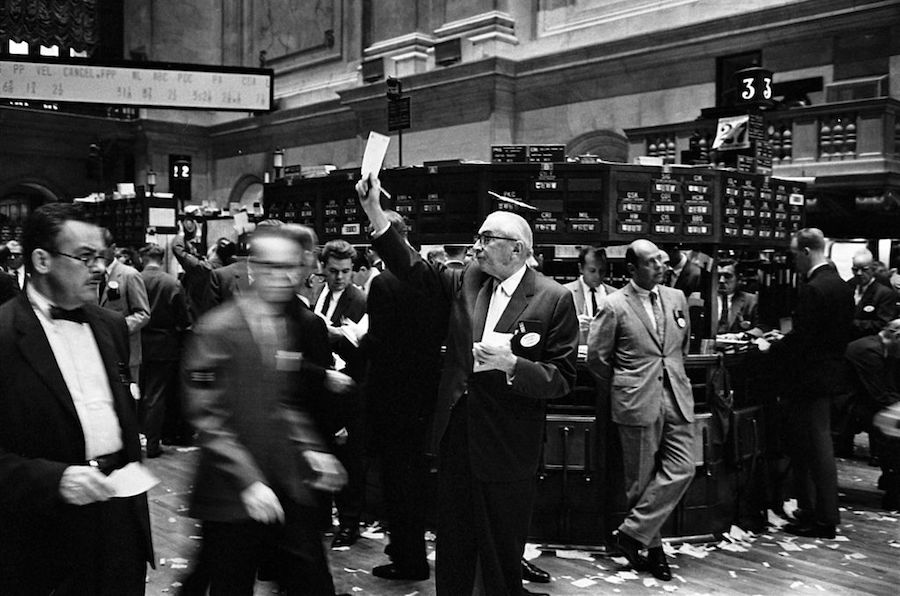Neither the Rational Expectations Hypothesis nor behavioral finance approaches alone provides an adequate predictor of investor behavior, argues Roman Frydman
Click on a news website, and you’re likely to see headlines purporting to give investors a peek into the future. “Can presidential election years forecast stock market movement?” asks the Daily News. “Donald Trump and Your 401(k): Imminent Danger?” warns the New York Times.
How does an investor make decisions when the future is uncertain?
The question isn’t merely academic; its answer affects nearly everyone invested in the market, either directly or indirectly.
Economists who hold to the Rational Expectations Hypothesis (REH), which became popular in the 1970s, would tend to stress how rational market participants weigh the importance of fundamentals — such as how a president’s policy preference might impact a particular company’s sales. Those who embrace the more recent behavioral approach, which emphasizes psychology, might consider how the bandwagon effects of optimism or pessimism could impact prices.
REH is rooted in the work of Eugene Fama, who saw markets as efficient mechanisms where prices are close to intrinsic values and people make rational decisions. The behavioral finance school, championed by Robert Shiller, holds that markets are more like casinos, where prices may have more to do with emotions than intrinsic value.
But what if neither of these approaches provides an adequate picture? In a new paper for the Institute for New Economic Thinking, “Stock-Market Expectations: Econometric Evidence that both REH and Behavioral Insights Matter,” NYU’s Roman Frydman, who chairs INET program on Imperfect Knowledge Economics, together with Trinity College’s Joshua R. Stillwagon focus on something most economists and economic forecasters do not take into account: the fact that investors know that unforeseeable events, large and small, will occur in the future.
In their view, investors are neither autonomous agents mechanically making decisions in order to maximize profits, nor are they irrational beings following the herd: “Our findings support the novel hypothesis that rational market participants, faced with unforeseeable change, base their forecasts on both fundamentals - the focus of the REH approach – and the psychological and technical considerations underlying behavioral finance,” they write. It’s not an either/or choice between the two; both factor into decision-making.
“There is an idea that investor decision-making is all psychological, so the fundamentals are disappearing from the view altogether,” says Frydman. “Our paper shows that, after all, fundamentals do matter, they just don’t matter in a mechanical way.”
In the political season, Frydman notes, markets are actually paying attention to fundamentals. “It’s not just all a casino,” he argues. “Elections obviously matter. The question is, why is it that they matter?” His answer is that they matter because investors are trying to evaluate the effects of candidates’ policies on the market. “That’s what’s creating uncertainty,” says Frydman. “It’s not political. It’s about the difficulty of understanding what the future holds in terms of fundamentals… You want to understand the effect of various policies on the fundamentals. With the change of the presidency and the uncertainty concerning the programs that these people propose and their implementation, there’s a great deal of uncertainty about what the outcome will be.”
Frydman is clear that the bandwagon effects of psychology matter, too, but not for the reason many forecasters think. “They matter because if you’re not sure about what the fundamentals will be and how they map into prices, then some other rules of thumb will come into play.” An investor may try, for example, to extrapolate from the past what will happen in the future. Someone buying stocks knows that the election of a new president can cause prices to move, so she may look back at previous elections and similar candidates for hints as to how the next presidential election will impact the market. “The evidence in our paper shows that the effect of these extrapolations tend to be short-lived,” notes Frydman. “It’s the fundamentals that matter after all.”
In Frydman’s view, humans approach the world guided by more than gut instincts. Our psychology is connected to how we judge fundamental information, and our psychological instincts, combined with our interpretation of fundamentals, add up to an approach reality that is essentially rational. This is summed up in what Frydman calls the Imperfect Knowledge Expectations hypothesis, without an understanding of which, he says, economic forecasters will struggle to make sound predictions.
Forecasters need also take into account the probability of unforeseeable events occurring in the future — which is difficult for forecasters to admit, because it raises the question over whether they are able to provide exact knowledge. But with flexible models and a better understanding of how psychology and fundamentals interact in investors’ decision-making, they can make qualitative predictions that help us understand the world of markets. As everyone who has a 401(k) and has seen a crisis evaporate savings knows, economists need better ways of understanding and modeling reality, whatever the future may hold.





